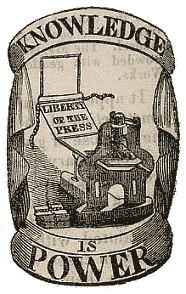



When the candidate Obama said he was against the war in Iraq despite the fact that all but a few Senators voted to support President Bush's invasion of Iraq to topple the tyrant Saddam. I felt it was his way of catering to the anti-war, anti-defense establishment to gain votes.
When he said he would if elected, negotiate with no pre- conditions, with Iran's President Ahmedinejad. Many including myself thought this was a bad idea since the diminutive dictator and the theocracy leader Ruhollah Khomeini had declared the USA the "Great Satan"!
Because of this, the United States has viewed the Islamic Republic of Iran as an enemy. It has done so at least since the forced occupation of the US embassy in Tehran on November 4, 1979 and the humiliating 444-day hostage-taking of 52 embassy staff, which included a failed rescue attempt during the Carter Administration.
Since then Iran has shared the top place on the US list of "rogue states" with Libya, Iraq, and North Korea. The United States has made numerous attempts since 1979 to reverse the Islamic Revolution and to bring down the regime that emerged from it through political and economic sanctions to no avail.
But when President Obama declared over the weekend that he was open to talks with the Taliban in Afghanistan I was convinced he and his minions know little about Foreign policy!
Iraq is not Afghanistan. (Iraq) is a country with a sophisticated cultural history and a distinct experience of administration. In (Afghanistan) there has never been a democracy and there is neither a functioning civil society nor a central power. Afghan society is structured along tribal lines. That poses both risks and opportunities. It should be possible to win over the powerful tribes that are friendly with the Taliban -- including those in Pakistan. Not every Islamic fundamentalist is a Taliban. The opportunity and challenge that faces OUR new US administration is finding those Islamists who are willing to cooperate.
In Iraq, an anti-American alliance between the local Sunni population and mostly foreign al-Qaida fighters broke up because the terror and the demand for total power eventually became unbearable to the locals. The partners became bitter enemies.
"The US military used this quarrel to present themselves as the new strong partner to the Sunni militia. This is why the invitation to Sunnis to take part in the political process in Iraq succeeded."
"This strategic innovation was not an offer of dialogue with 'moderate Sunnis,' but the willingness of the US to work closely together with former enemy fighters. Al-Qaida was not convinced and gradually pacified but rather defeated by the use of force." Source: Der Spiegel
It is far from certain that similar conditions for an alliance with the tribes exist in the Afghan mountains. And it is important to remember that Russia sent six divisions of troops into the fight( 182,000 at one time) with the Taliban, and lost after nine years and the loss of 14,000 killed!








No comments:
Post a Comment